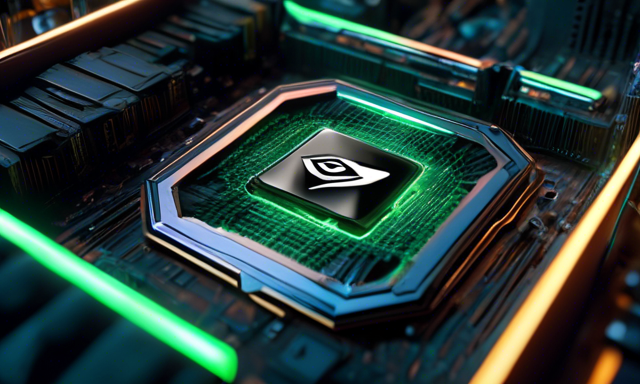NVIDIA Advancement in Quantum Computing
NVIDIA recently unveiled a breakthrough in quantum computing with its CUDA-Q platform, previously known as CUDA Quantum. This platform has played a crucial role in reducing the resource requirements for quantum clustering algorithms, making them more practical for near-term quantum computing applications.
Understanding Quantum Clustering Algorithms
Quantum computers utilize superposition, entanglement, and interference to extract insights from data, offering potential speed enhancements over traditional computing methods. While early quantum computers are anticipated to excel at compute-intensive tasks, they may struggle with data-intensive tasks due to the lack of efficient quantum random access memory (QRAM).
- Quantum computers leverage superposition, entanglement, and interference for data analysis.
- QRAM limitations restrict quantum computers from excelling in data-intensive tasks.
Significance of Coresets in Quantum Machine Learning
Associate Professor Dr. Petros Wallden and his team at the Quantum Software Lab, University of Edinburgh, utilized CUDA-Q to develop new quantum machine learning (QML) methods that require fewer qubits for analyzing large datasets.
- Utilizing CUDA-Q for QML simulations reduced qubit count.
- The research extended classical dimensionality reduction techniques for QML applications.
Exploring Coresets and Quantum Clustering
Coresets are weighted subsets of a dataset that approximate the dataset’s characteristics, enabling data-intensive quantum machine learning tasks with fewer qubits.
- Coresets aid in reducing data-intensive QML tasks to a manageable size.
- Assessment of errors after quantum computations is crucial in core set selection.
Quantum Clustering Algorithms Overview
By reducing the input data size, quantum clustering algorithms like Divisive Clustering, 3-means Clustering, and Gaussian Mixture Model (GMM) Clustering achieve approximate clustering and dimensionality reduction of datasets.
- Divisive Clustering involves iterative bipartitioning of data points.
- 3-means Clustering partitions data into three clusters based on evolving centroids.
- GMM Clustering sorts points based on Gaussian distributions mixtures.
Overcoming Scalability Challenges with CUDA-Q
The use of CUDA-Q in exploring QML-clustering approaches allowed for simulations on GPU hardware, enabling comprehensive simulations on problem sizes up to 25 qubits.
- CUDA-Q’s features like ansatz kernels and spin Hamiltonians facilitated the optimization process.
- Scaling up to 25 qubits was possible on NVIDIA DGX H100 GPU systems without code modifications.
Value of CUDA-Q Simulations in Quantum Computing
Simulating various clustering algorithms against classical methods demonstrated the superior performance of quantum algorithms, particularly in GMM and divisive clustering approaches.
- NVIDIA and Petros’ team plan to collaborate on developing new quantum-accelerated supercomputing applications.
- Benchmarking against classical methods showcases the potential of quantum clustering algorithms.
Exploring CUDA-Q for Quantum Computing
CUDA-Q enables the development and simulation of innovative QML implementations, with code portability for large-scale simulations or deployment on physical quantum processing units (QPUs).
- CUDA-Q facilitates the development and simulation of novel QML implementations.
- For more details and to begin exploring CUDA-Q, visit the NVIDIA Technical Blog.
Hot Take: Embracing Quantum Computing with NVIDIA
Embrace the potential of quantum computing with NVIDIA’s groundbreaking CUDA-Q platform, offering advancements in quantum clustering algorithms and making them more accessible for near-term applications.





 By
By
 By
By
 By
By
 By
By

 By
By